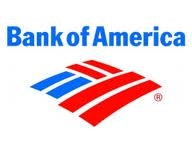Although we don’t believe in timing the market or panicking over daily movements, we do like to keep an eye on market changes — just in case they’re material to our investing thesis.
The broad market indexes were up again today, capping another great week for stocks. In fact, with a 2% gain, the S&P 500 (INDEXSP:.INX) recorded its best week in roughly two months, putting it up 3.4% for the month. The narrower, price-weighted Dow Jones Industrial Average (INDEXDJX:.DJI) did even better than that, rising 3%, its best weekly gain since January.

I have been confounded by the VIX before, but I find such a low level of volatility astonishing, given that there remains some uncertainty concerning the Fed’s “taper” of its bond-buying program (the FOMC meets next week), not to mention looming political battles over the federal budget/ debt — all of which falls squarely within the next 30 days.
After Lehman, this problem has only gotten worse
Five years ago today, on Saturday, Sep. 13, 2008, the board and senior management of Lehman Brothers were desperately hoping a white knight would step forward to rescue it, much as JPMorgan Chase had done for Bear Stearns earlier in the year. The previous day, the stock had fallen 14%, for a stunning 77% decline on the week. Investors were fleeing the bank’s real estate and mortgage exposure, and were dumbfounded by the mystifying lack of urgency with which CEO Dick Fuld was responding to the crisis.
No buyer would materialize, leaving the bank no option other than to file for bankruptcy the following Monday morning. The bankruptcy — the largest in U.S. corporate history — sent a debilitating shockwave through the financial markets and the global economy, and was one of (if not the) defining moments of the financial crisis.
One might have hoped that such a cataclysm would have served as a useful lesson for bankers, regulators, and politicians, but, in a wonderful article published in the Financial Times titled Insane financial system lives post-Lehman [sign-up required], Gillian Tett points out six anomalies that persist in the post-Lehman era. Here’s the one I find most striking:
“The big banks are bigger — not smaller. When Lehman collapsed, there was outrage over the fact that many western banks had become so enormous they were “too big to fail,” creating concentrations of risk. Reformers called for banks to be broken up, to make them smaller and create badly needed diversity. Some financial officials, such as Richard Fisher of the Dallas Fed, continue to demand this sensible step. But, as the investor Henry Kaufman points out, the banking world, especially in the US, has become more concentrated than ever. That is unnerving, particularly since no one knows how regulators would ever shut down a really big bank.”
I continue to believe that the top three universal banks, JPMorgan Chase & Co. (NYSE:JPM), Bank of America Corp (NYSE:BAC) and Citigroup Inc. (NYSE:C) offer value at current levels. The most expensive of the three stocks, on the basis of price-to-tangible-book-value multiples, JPMorgan Chase & Co. (NYSE:JPM), trades at 34% premium to its tangible book value. (Citigroup Inc. (NYSE:C) still trades at a 5% discount!) Nevertheless, it’s always worth examining the opposite opinion, and Tett highlights one risk factor that may help explain why these banks continue to trade at substantial discounts to their historical multiples.
The article 5 Years After Lehman, Banking Has a Bigger Problem originally appeared on Fool.com and is written by Alex Dumortier, CFA.
Fool contributor Alex Dumortier, CFA has no position in any stocks mentioned; you can follow him on LinkedIn. The Motley Fool recommends Bank of America. The Motley Fool owns shares of Bank of America and Citigroup Inc.
Copyright © 1995 – 2013 The Motley Fool, LLC. All rights reserved. The Motley Fool has a disclosure policy.




